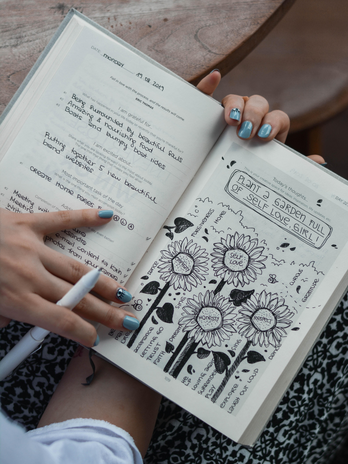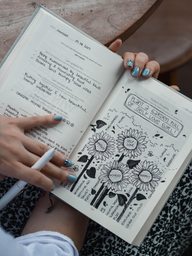Do you love reading, but find it hard to focus on a seven-hundred-page novel? Do you hate how journalism today is owned by billion-dollar corporations? Do you want to give smaller, lesser-known authors a voice?
If any of these apply to you, look no further! Zines (pronounced zeens) are small, self-published books that let authors and artists show their work to the world. Emerging in the 1970s and 80s, they were crucial to the punk/ alternative scene. Zines were, and are, a way for individuals to share ideas and opinions outside the mainstream media. Typically the size of a pamphlet, they are easy to read and cover a wide variety of topics. Science fiction, politics, steampunk, anti-capitalism, anarchism, witchcraft, comics, cooking and queer history are just some of the topics you can find within the pages.
Zines themselves can be hard to define. Historically, they have provided safe platforms for writers to broadcast their work that is often considered too specific or controversial. Zines traditionally have no editor, so the work is the author’s pure, unfiltered thoughts. They are characterized by their DIY nature, most copies are made by the author themself. All that is required to make a zine is access to a printer and staples, though many artists use newspaper clippings, paint, and stencils to bring their works to life.
Unlike magazines or online articles, the intention of zines is not to make a profit. Rather, the aim is typically to add unheard, marginalized voices to the world of publishing. A common flaw of publishing today is heavy bias from large publishing mediums. These mediums limit what a journalist can say based on the values (and investors) of the company. Since zines are self-published, there are no bounds to what an author or artist is allowed to create.
I fell in love with zines because of how random they are. Seeing a book in a Fine Arts library that is bound by staples is something I never thought I would see. I’ve always been interested in things that push the boundaries of social norms. That said, here are my favorite places to find zines in Pittsburgh!
My personal favorite place to purchase zines are The Big Idea Bookstore and Cafe. Established in 2001, The Big Idea is a bookstore that sells zines, books, CDs, T-shirts and more. Their collection includes radical political literature, science fiction, philosophy and other texts that encourage readers to engage in a new way of thinking.
If you are new to zines and just want to try them out without buying them, the Frick Fine Arts Library is a great place to start! Though the fine arts building may look like a bit like a haunted house, the library has plenty of cozy reading spots. Frick has a smaller selection of zines, in fact, you could probably read every zine in the library in an afternoon. The collection covers witchcraft, movie reviews, sandwiches, queer icons, poetry, ramen noodles, and so much more.
The reason that I only included two places on this list is because zines can be pretty hard to find. Most of the time, you don’t go looking for zines, the zines magically find you. As odd as that sounds, whenever I go to a place that I think would have zines, they don’t have them, and whenever I think a place shouldn’t have them, they do. Zine hunting can be difficult but it’s definitely worth it!


